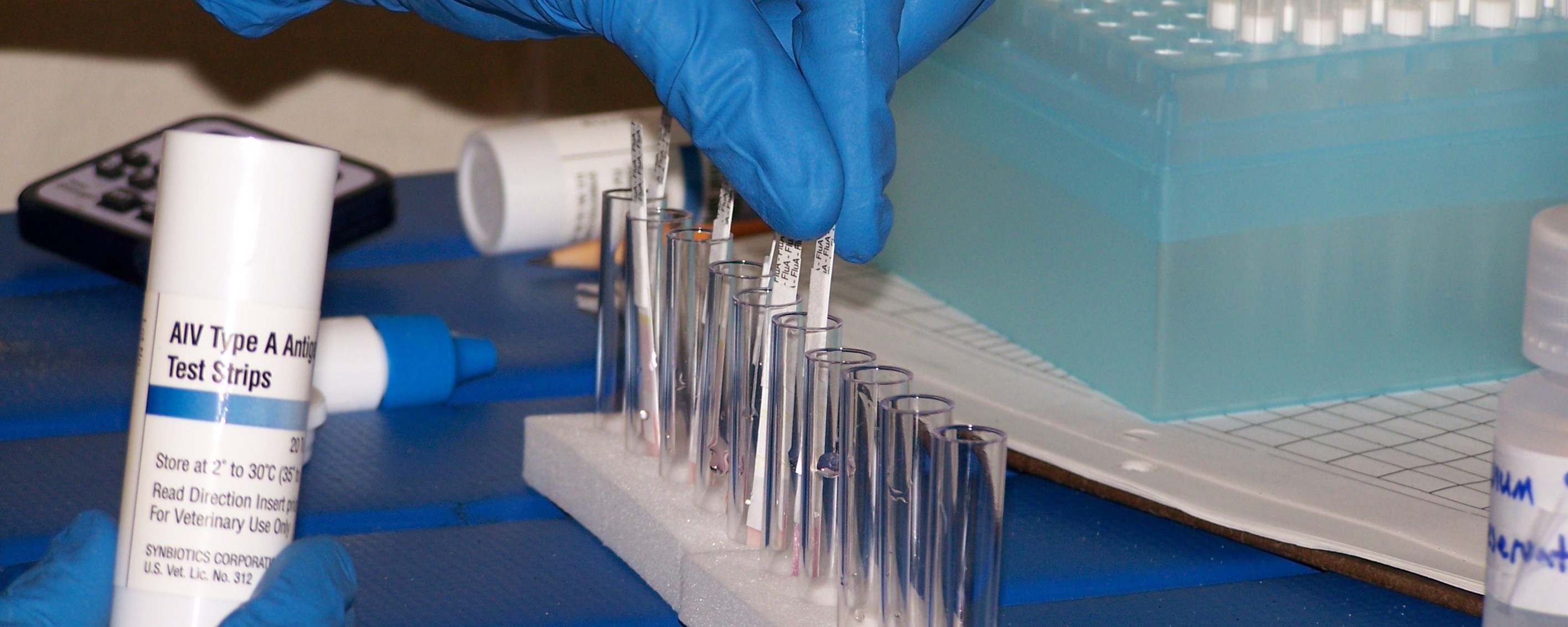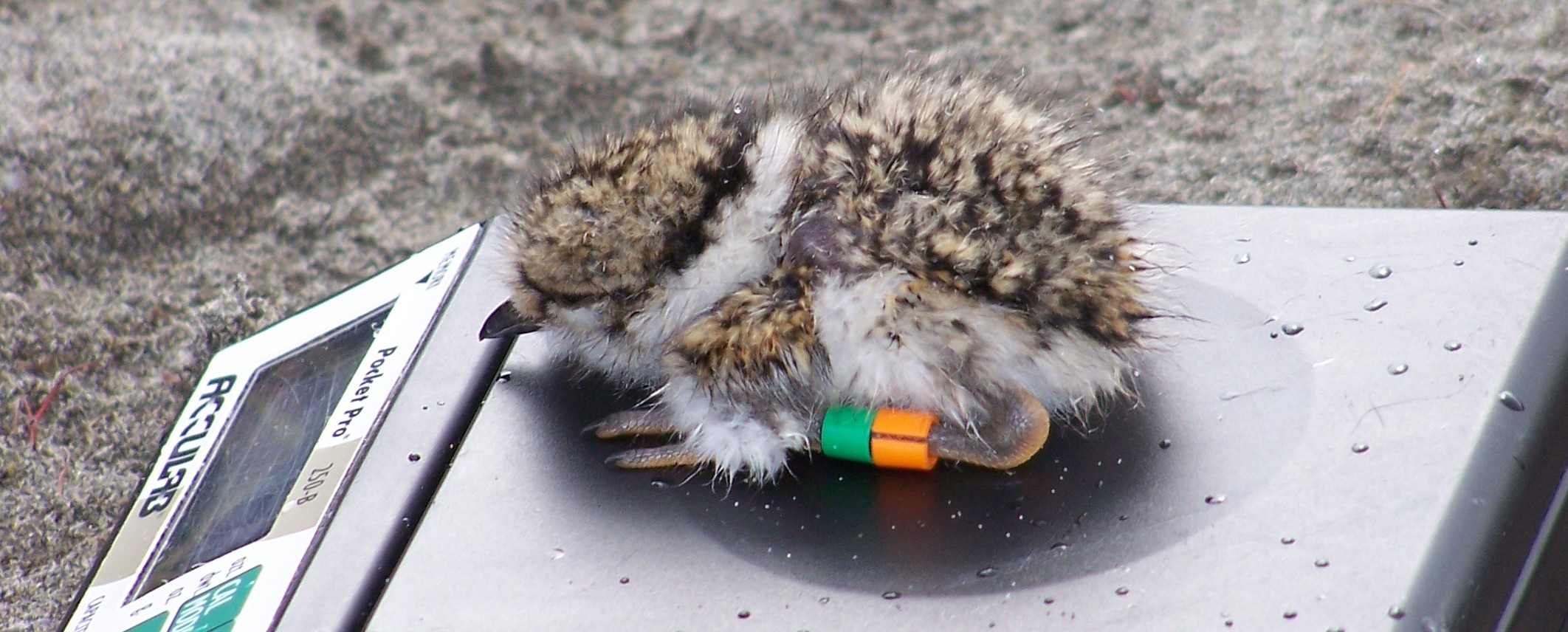Technologies for the field identification and on-site confirmation of Avian Influenza

PROJECT
Technologies for the field identification and on-site confirmation of Avian Influenza
Background
Waterbirds, including shorebirds, are a reservoir of avian influenza, but little is known about their potential role in the spread of the disease. Extensive field testing has been conducted on wild birds, but most efforts have required shipping of samples to laboratories for later analyses.
Methods
At the Prince William Sound Science Center we tested three methods in the field or in the laboratory for detecting avian influenza: antigen test strips, real-time reverse transcriptase Polymerase Chain Replication (RRT-PCR), and microarrays. We focused on capturing and sampling Western Sandpiper and Pectoral Sandpiper while they were migrating through the Copper River Delta. Both species had previously been identified as potential carriers of H5N1, a highly pathogenic strain of avian influenza. We obtained cloacal swabs and pharyngeal swabs from shorebirds during two spring seasons (2006 and 2007) and one fall migration (2006).
We used antigen test strips in both remote conditions and at the Science Center laboratory. The ability of these tests to detect low titers of virus in wild birds, however, is not known. At the Science Center, we also used a portable Ruggedized Advanced Pathogen Identification Device (RAPID: Idaho Technologies, Salt Lake City, UT), to perform RRT-PCR. A research microarray was used to screen avian influenza samples in cooperation with CombiMatrix Corporation.
What we learned
Our study demonstrated that there is significant potential for coupling state-of-the art technologies like antigen strip tests, RRT-PCR, and microarray chips for obtaining surveillance results. Development of these systems could prove vital in efforts to reduce the impact of highly pathogenic avian influenza outbreaks on wildlife, commercial poultry, and human health.
PRINCIPAL INVESTIGATOR
Mary Anne Bishop, Ph.D.PWS Science Center
mbishop@pwssc.org




